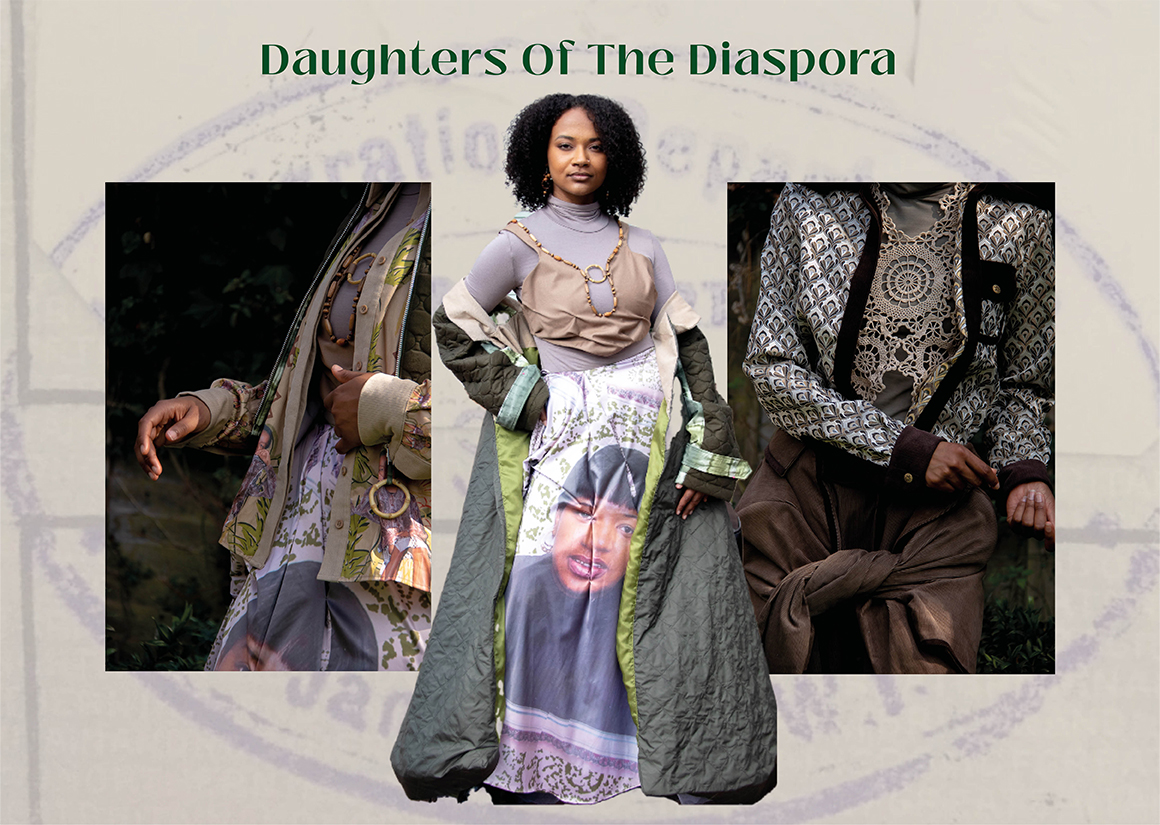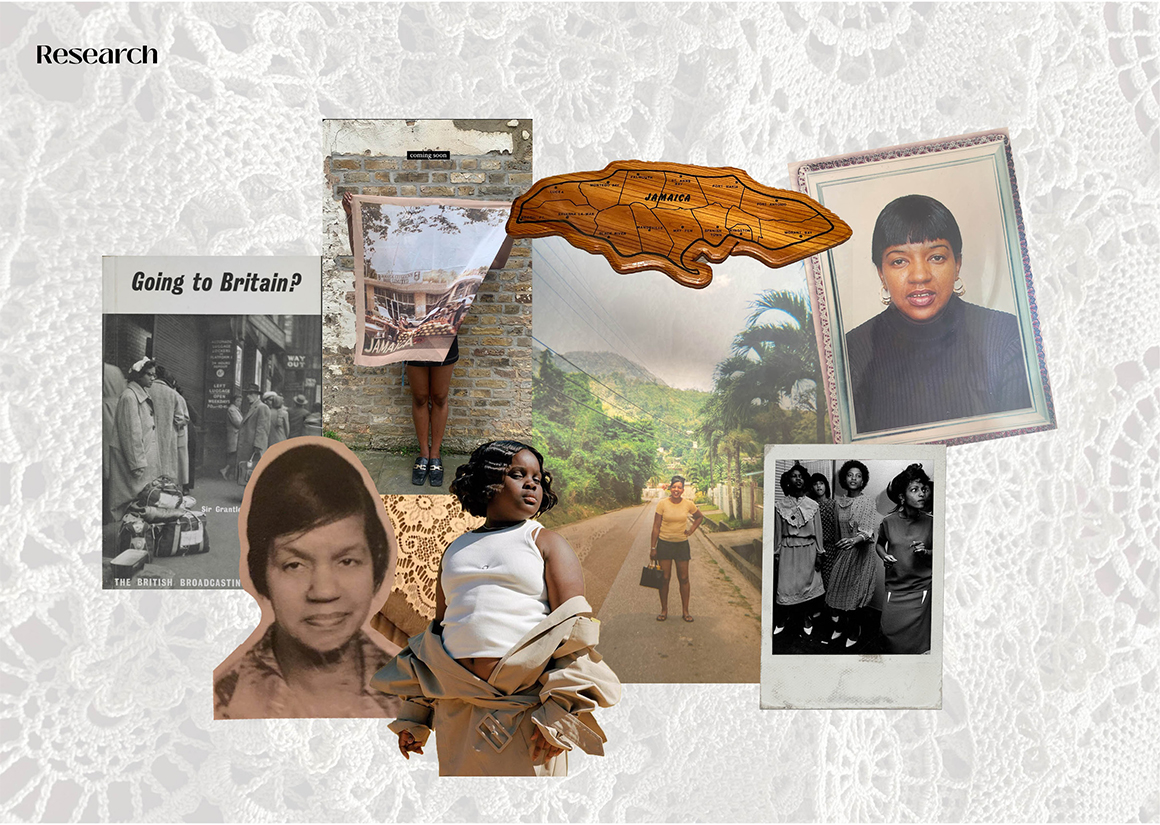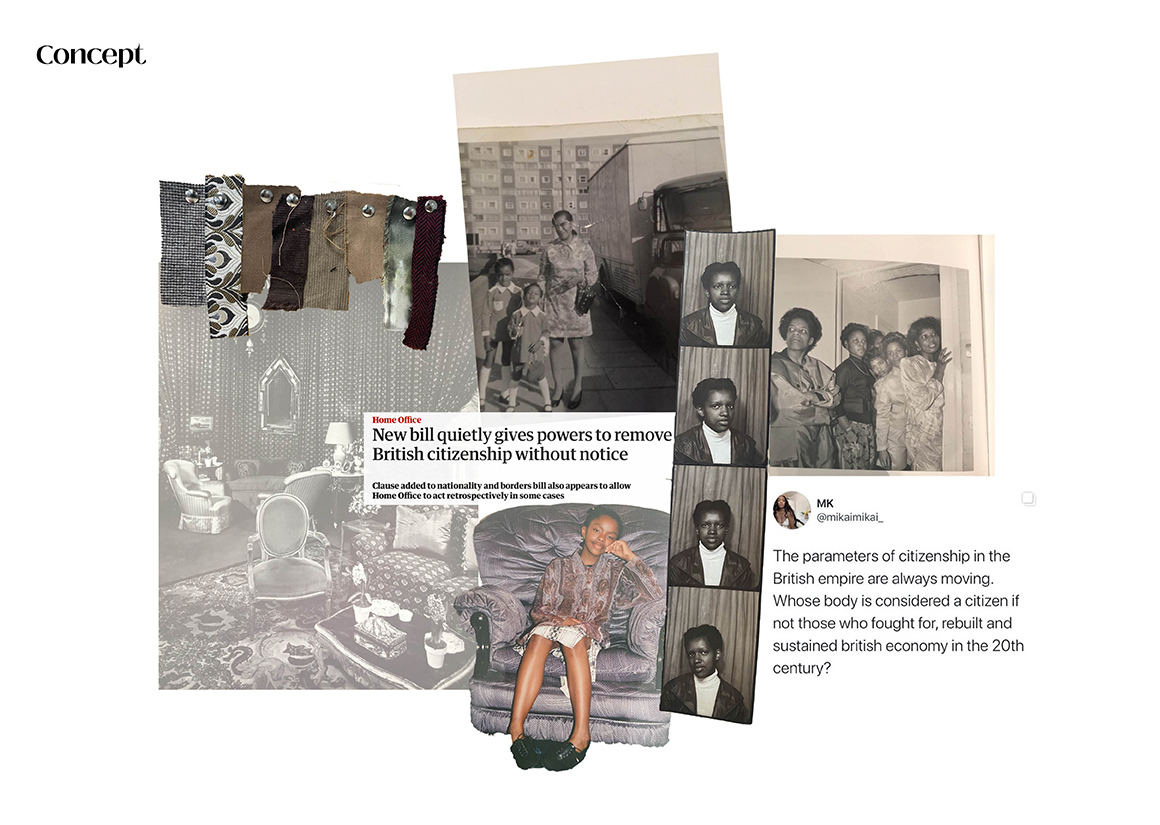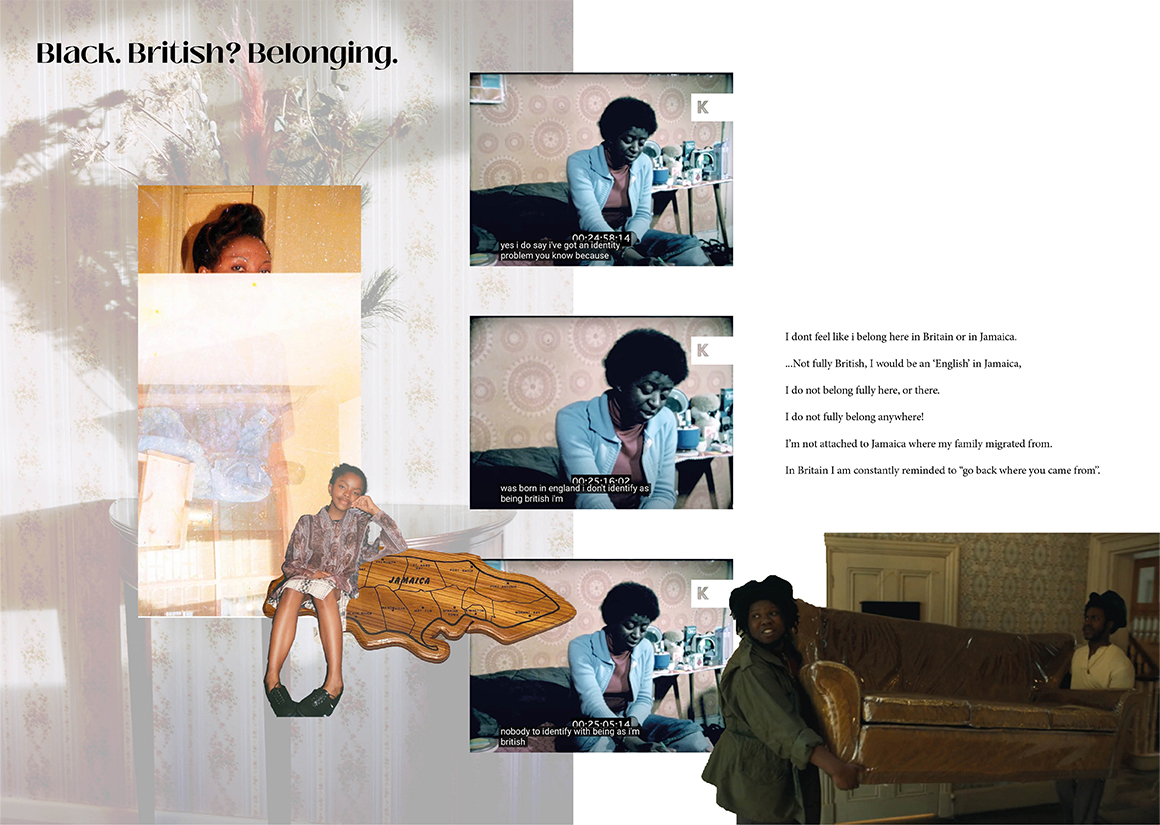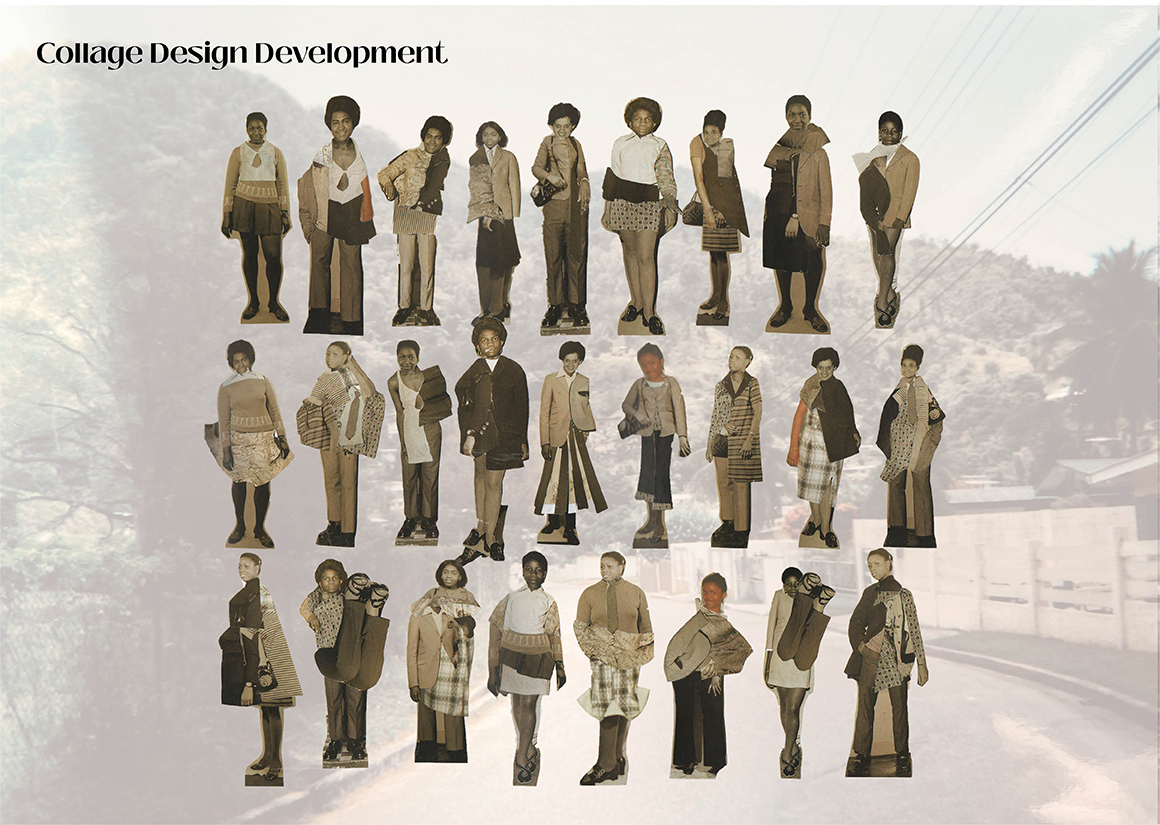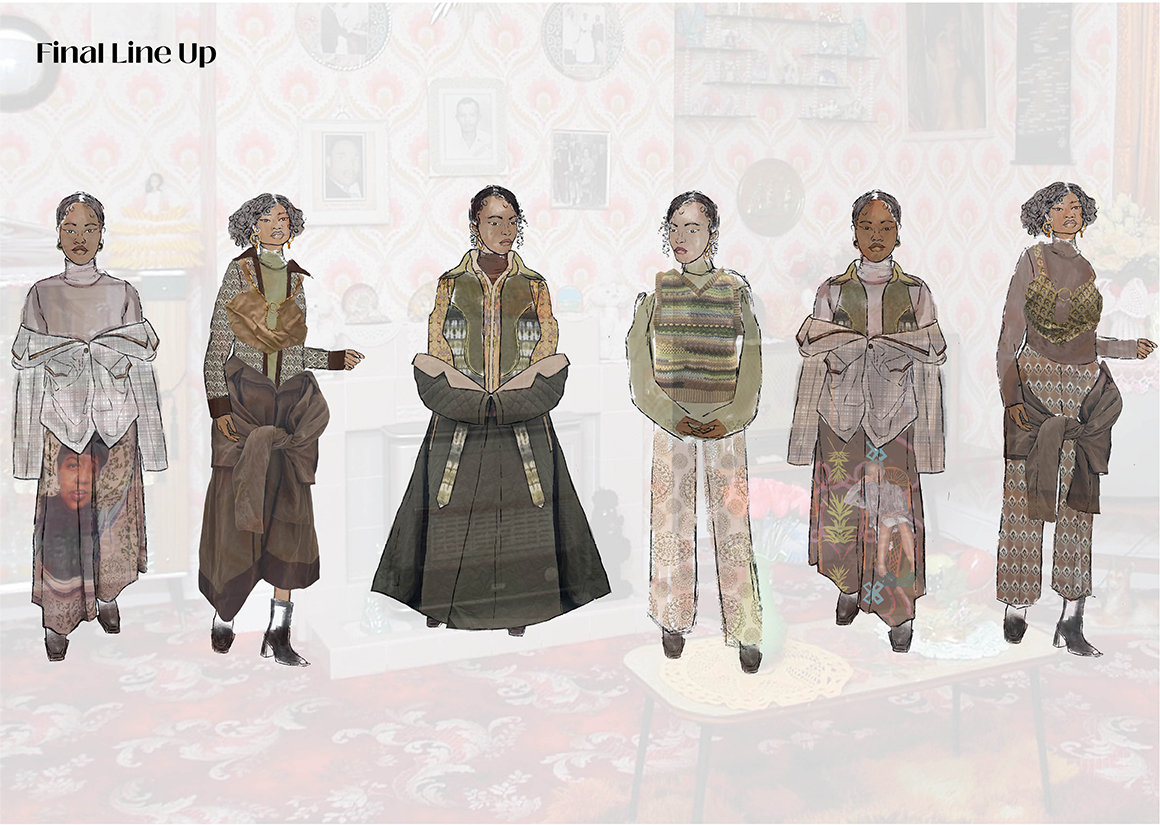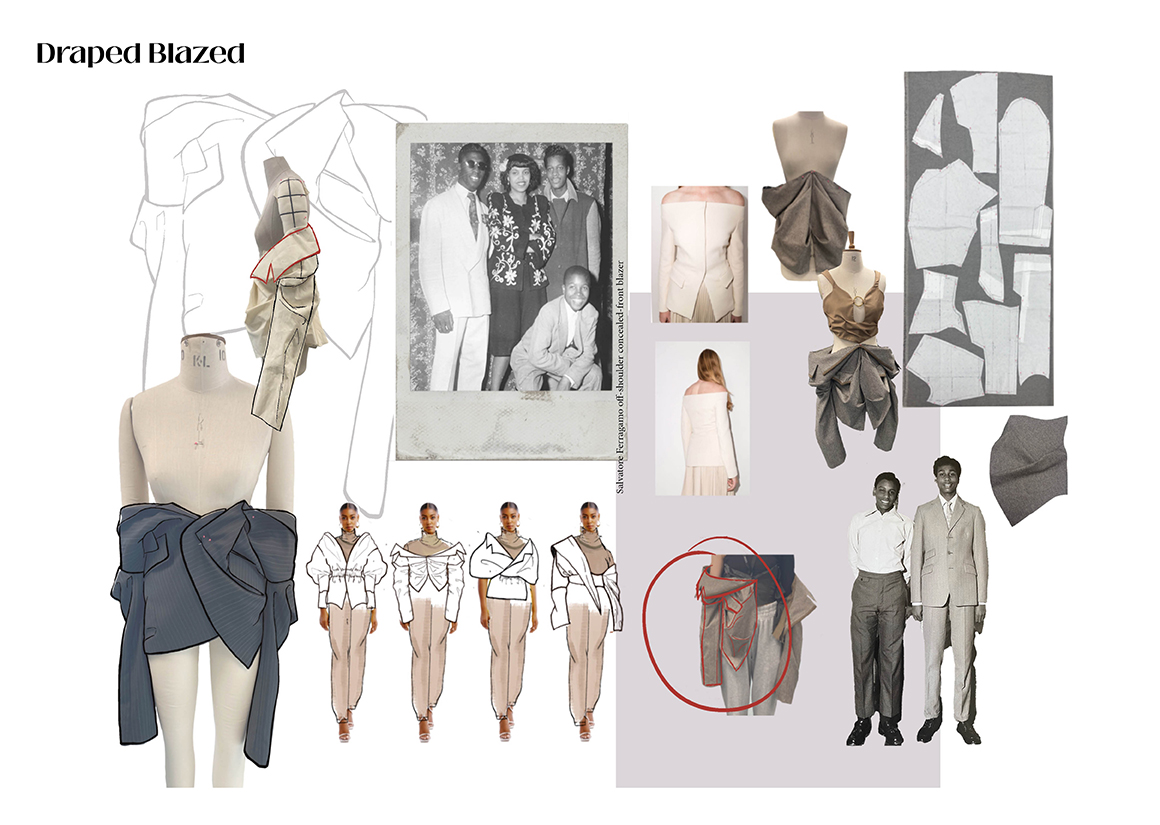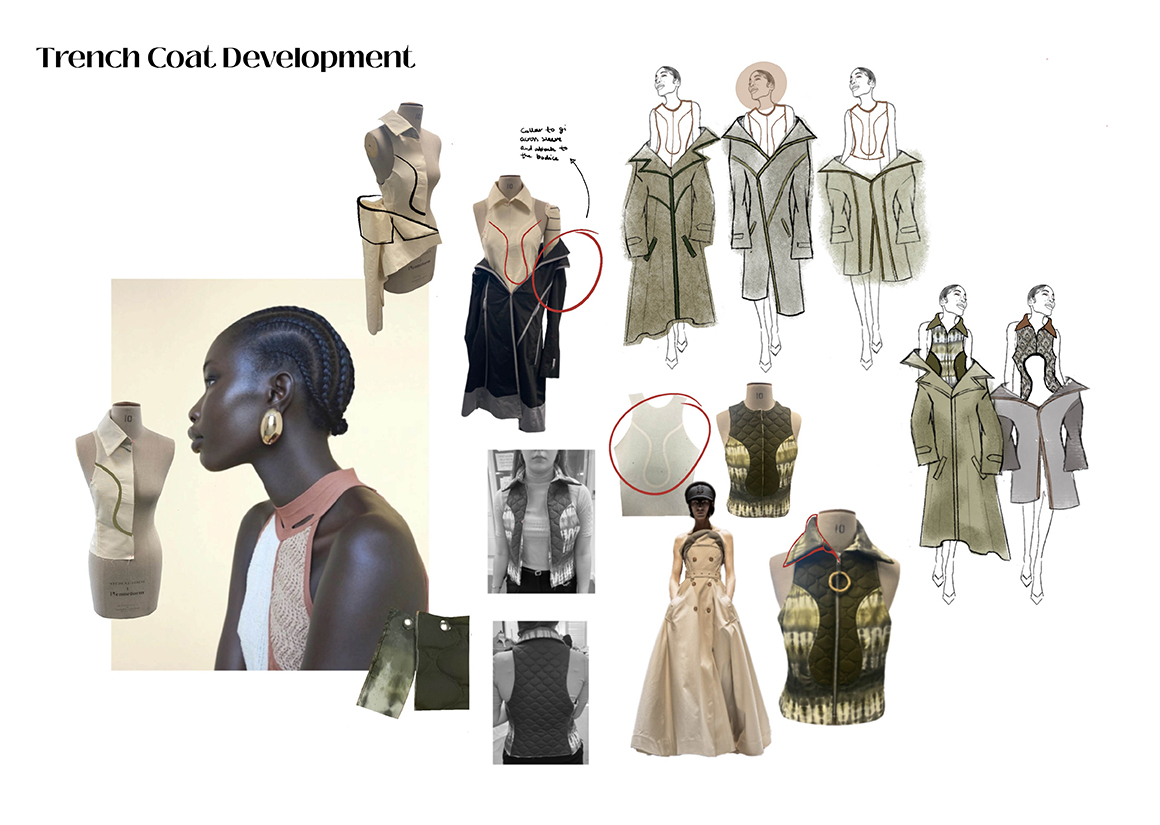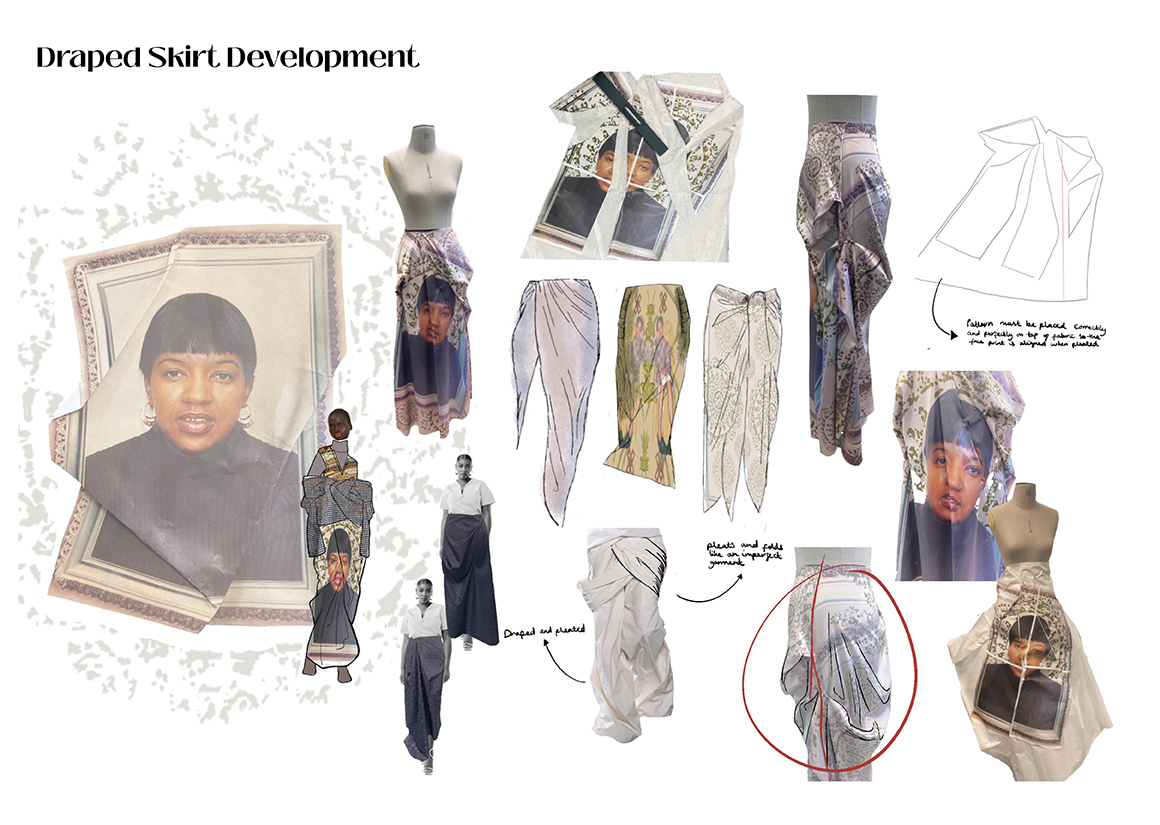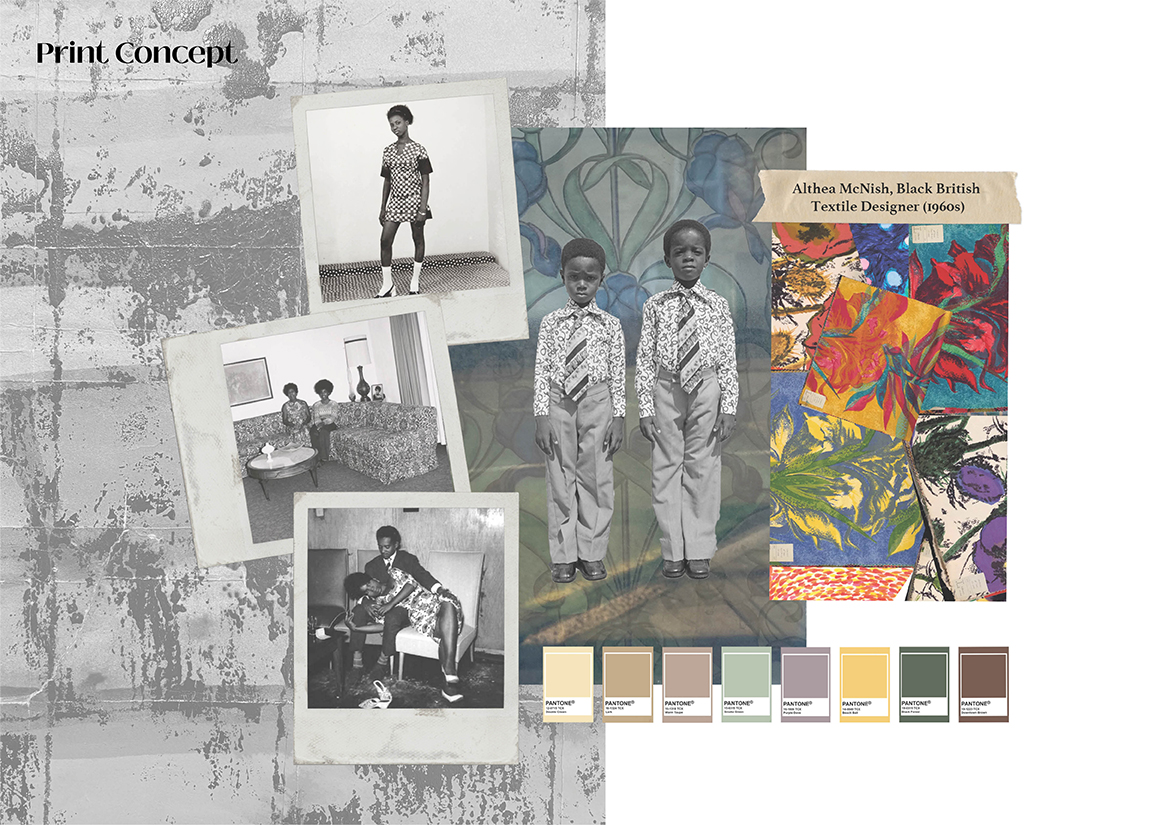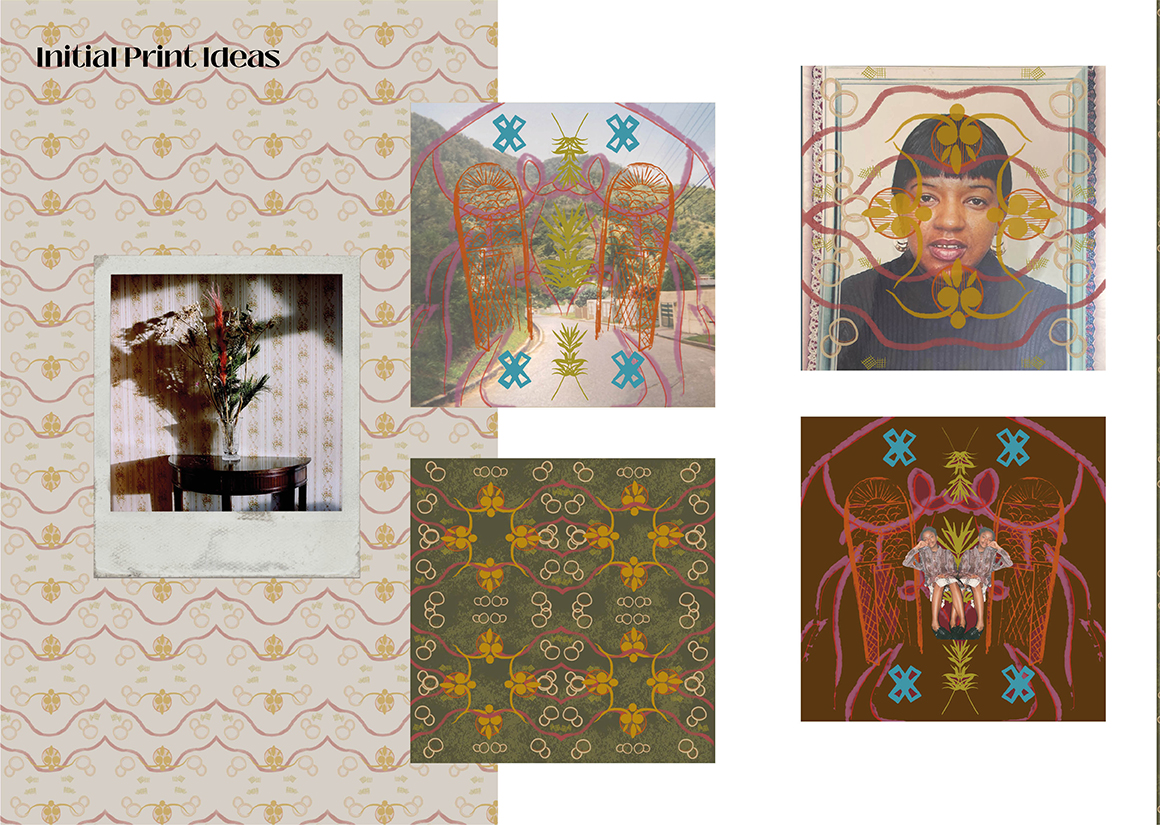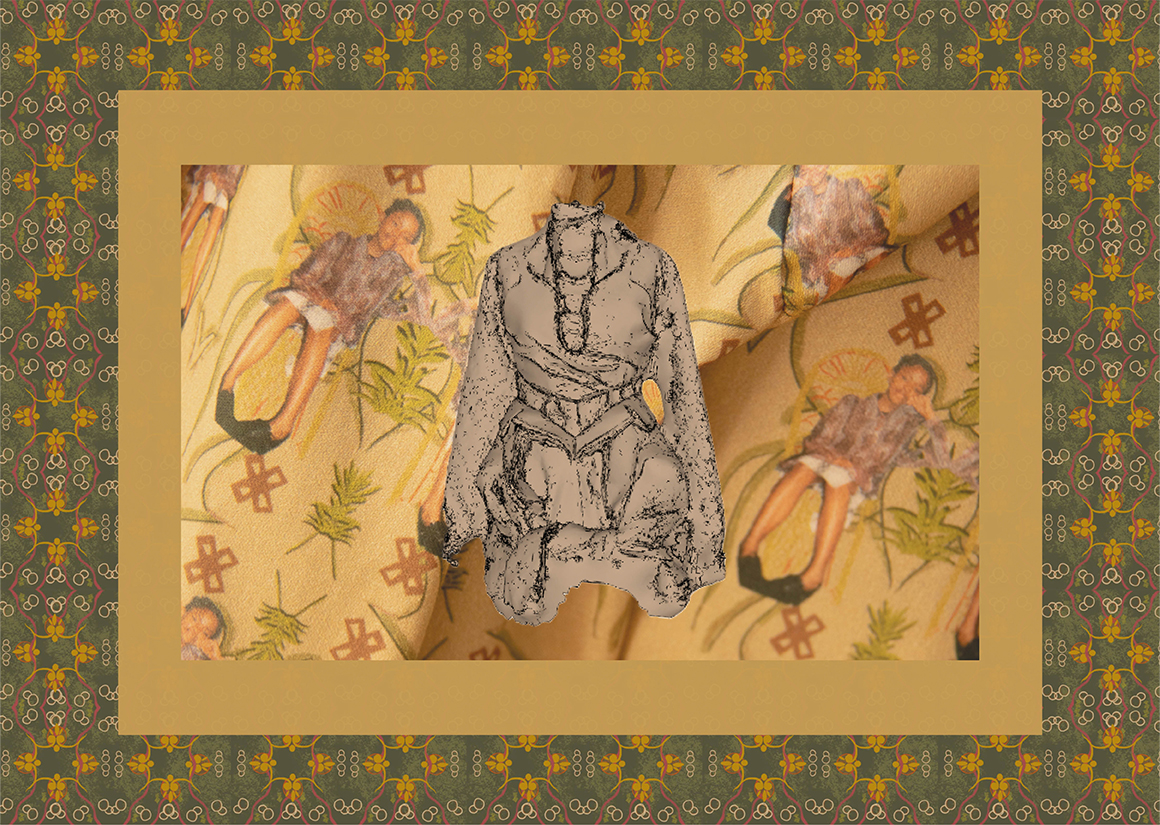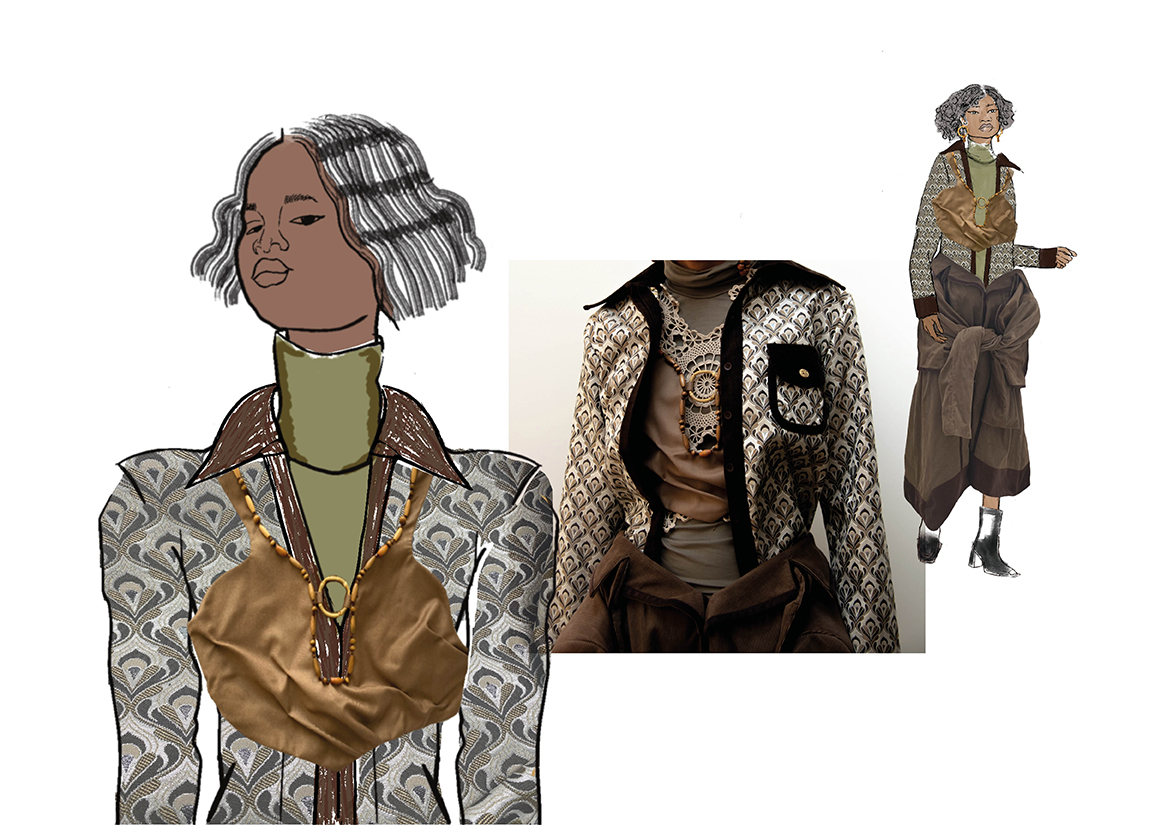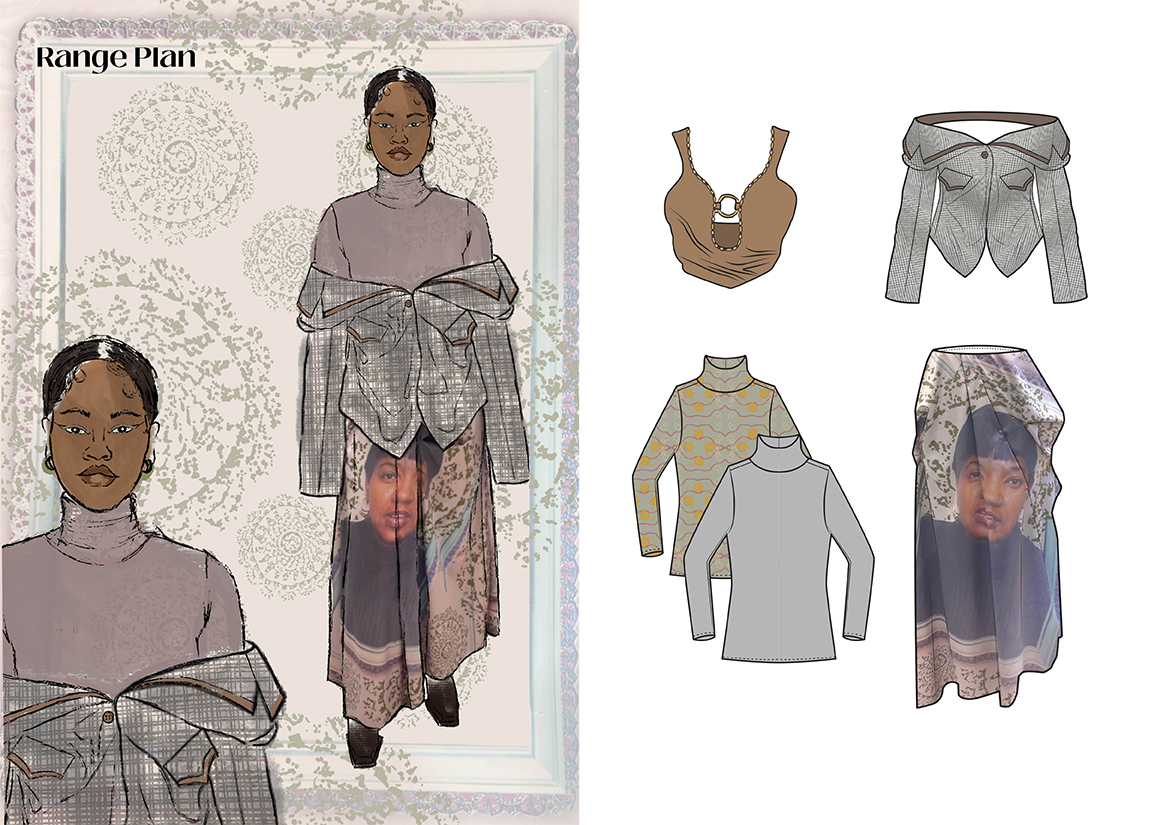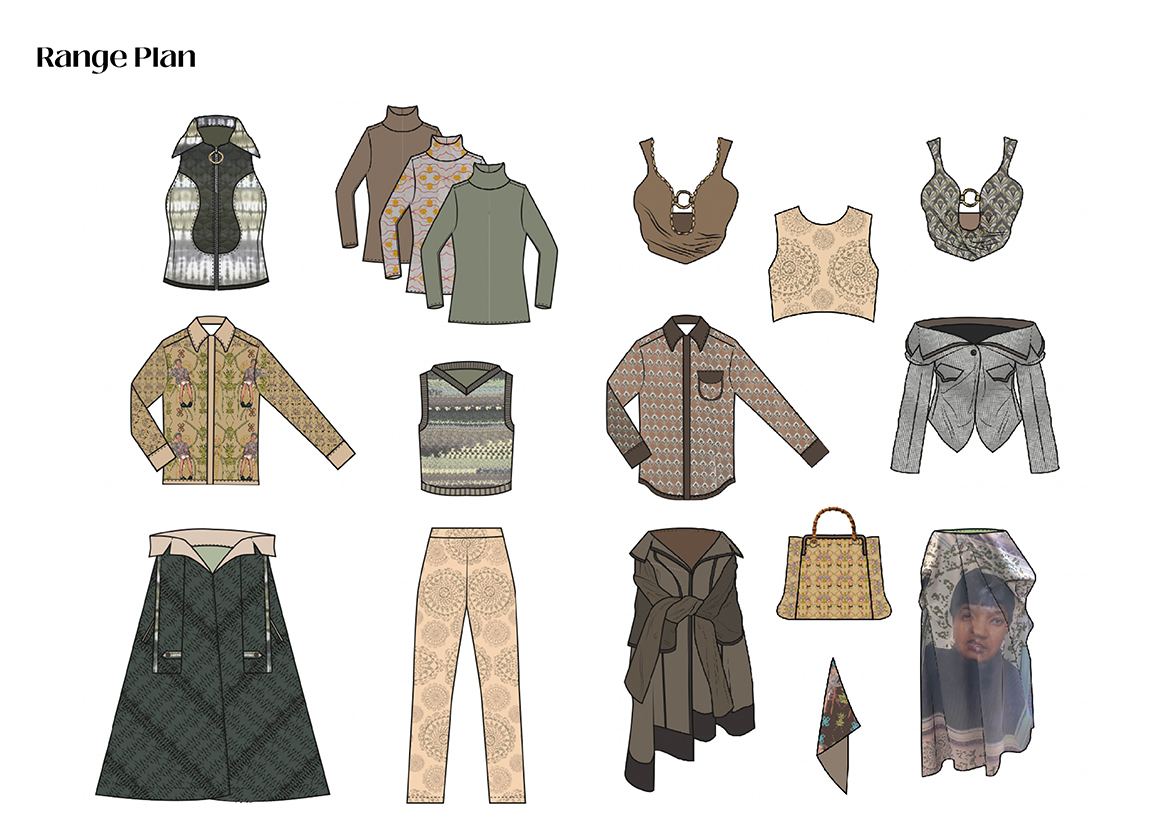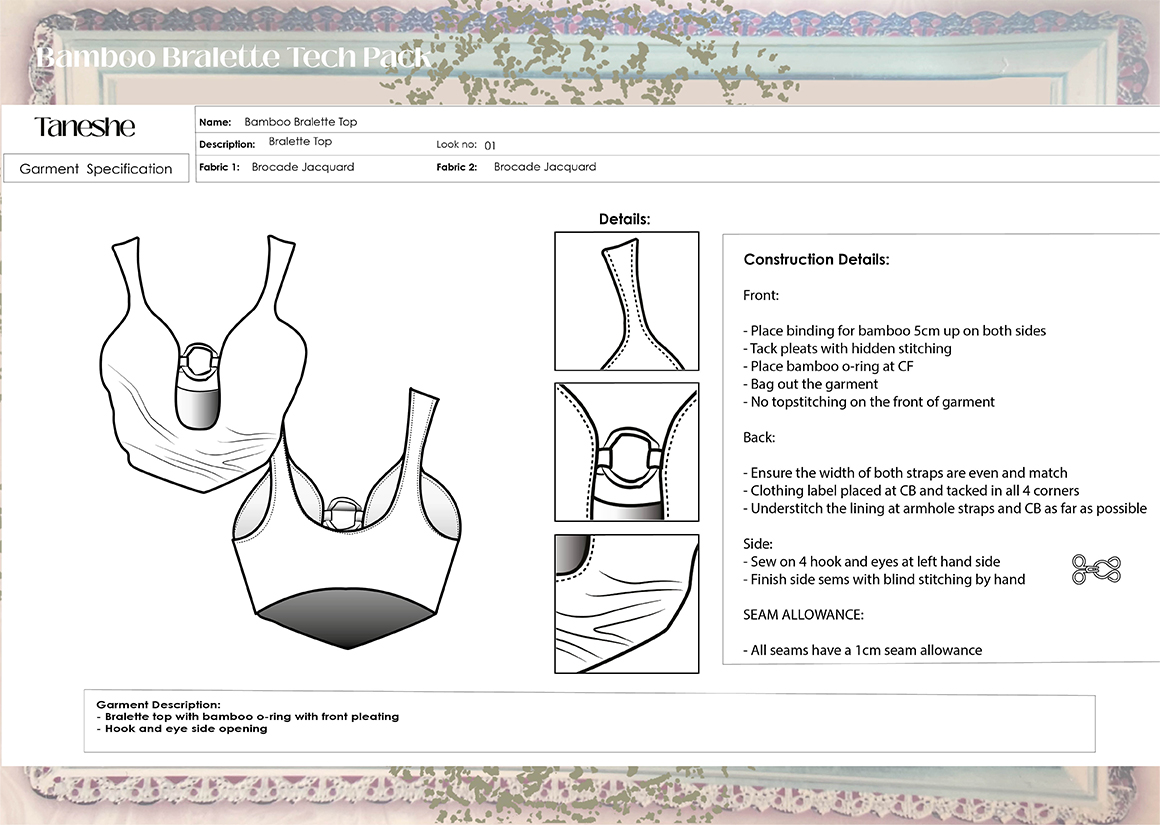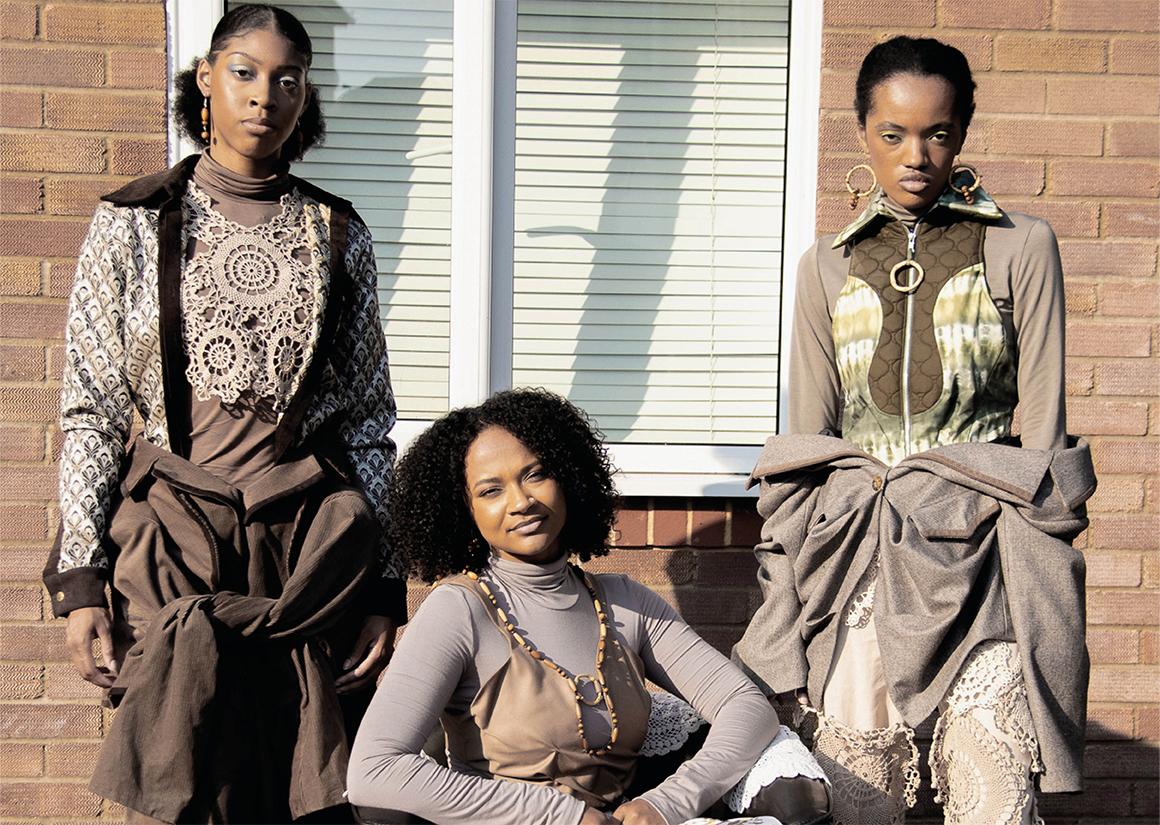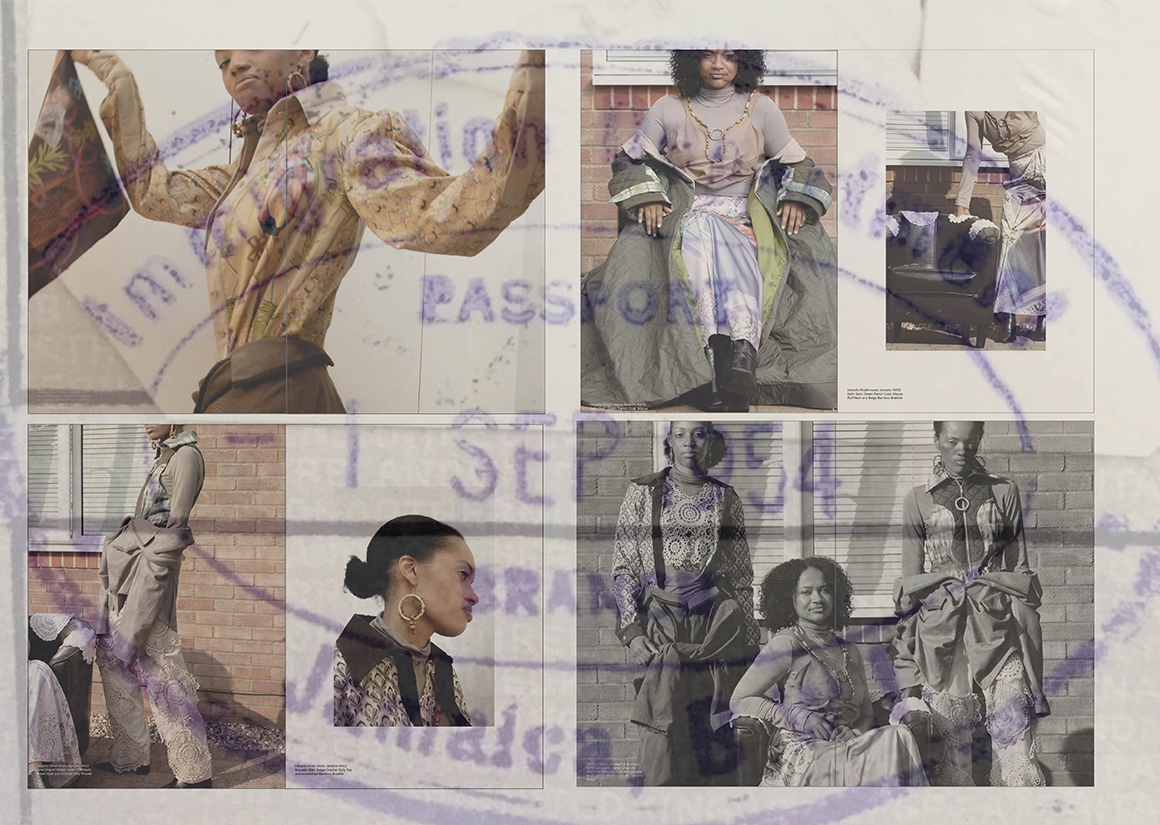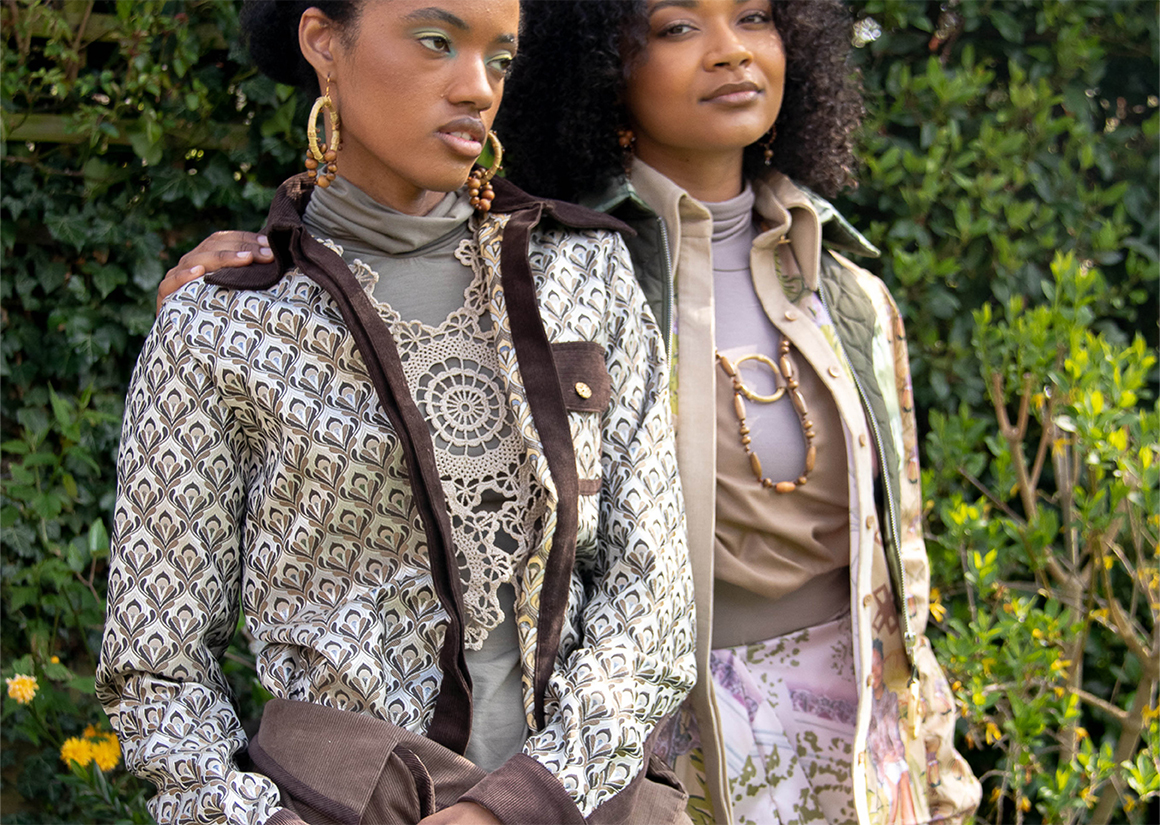
About Me
Taneshe presents debut final collection 'Daughters of the Diaspora'
Taneshe Oliver-Lodge is a Harper’s Bazaar Scholar and Fashion Designer of Black British Caribbean heritage who specialises in Womenswear. Before studying BA fashion, she studied textiles and always loved the technical side of fashion from sewing to pattern cutting.
As a British daughter of the Caribbean diaspora, in the aftermath of the Windrush Scandal, when the parameters of citizenship have been so clearly shaken, my collection was a response to historian Mikai’s question, whose body is considered a citizen if not those who fought for and rebuilt the British economy? This propelled my search to explore the construction of belonging for the West Indian diaspora. Focusing on diasporic gender and domesticity, the safe space of the home and sartorial respectability.
INSPIRATION
Daughters of the Diaspora explores the complexities of constructing identity when Black and British.
My research and concept development were informed by my own family narratives, our photos and material culture – our home and the things that surrounded me throughout my youth. Inspired by McMillan’s West Indian Front Room which considered the centrality of home within the migrant experience, I drew on the material culture of my heritage as a young Black British woman, whose family migrated from Jamaica to Britain in the 1950s.
Our heritage was ingrained in the decoration of our home. It gave us a sense of both belonging and difference - of love, respect and pride. I aimed to capture this in my collection from my initial research right through to the fabrication; with the integration of family portraits in the prints; with silhouettes that spoke of the desire for respectability and acceptance; even the gentility of the antimacassars of my grandmother’s living room have been lovingly transposed into my garments.
MY WORK
PORTFOLIOS
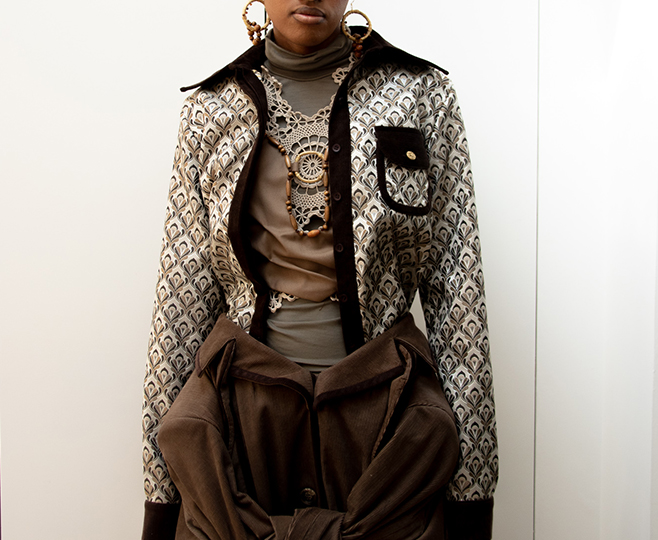
DETAIL
Daughters of the Diaspora explores the complexities of constructing identity when Black and British
Throughout my studies at university, I have always used the research process to delve into the concept and gather a broad range of research from photography to videos and music to design from a place of in depth understanding. For my final collection ‘Daughters of the Diaspora’ photography and styling I wanted to reinterpret and capture how Black British women during the 1970s constructed an identity through layering and the respectable ‘Sunday Best’ style of dress. This became a focal point with some outfits consisting of over 5 garments layered with complimenting tones and textures. I really enjoy both the design and technical part of fashion and hope to continue this in my career.
